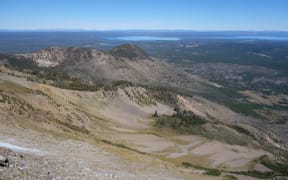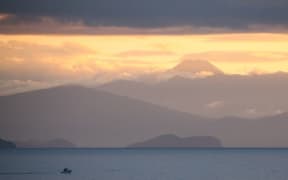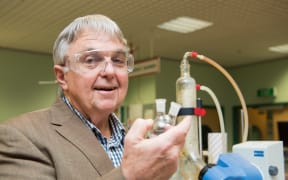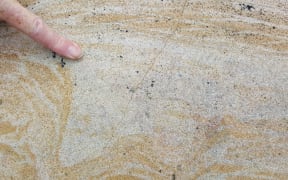The country's top researchers have been recognised in the annual New Zealand Research Honours - with a volcanology professor taking out the top award.
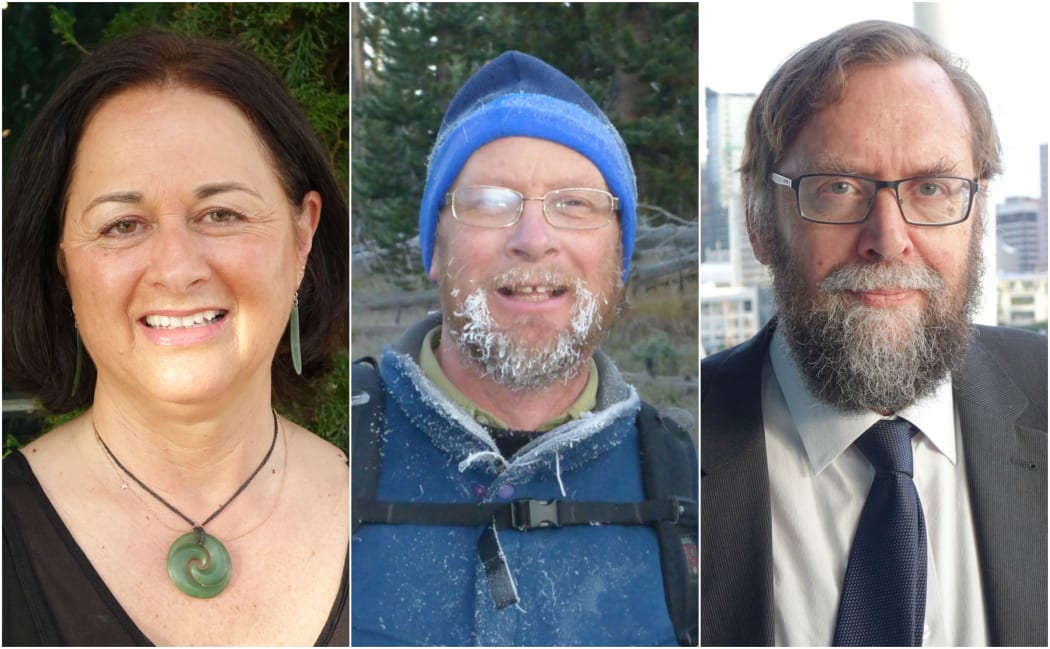
Professor Tracey McIntosh, Professor Colin Wilson and Professor Alistair Gunn. Photo: RNZ / Supplied
The awards were presented to 21 researchers at a gala dinner held by the Royal Society in Auckland last night.
The top award - The Rutherford Medal, for an exceptional contribution to New Zealand research - was presented to volcanologist Colin Wilson.
"It's an enormous privilege to be awarded this medal, it is one-of-a-kind and the people who have won it in the past are a very, very proud and superb group of people - I am happy to be in their company."
Mr Wilson has been researching the processes involved in volcanic eruptions in New Zealand and around the world for almost 30 years.
His research has detailed how large volcanoes behave before and during explosive eruptions, including those that created Lake Taupō.
He said he was honoured to receive the award - and has no plans to slow down when it comes to his work.
"There is far too much exciting work going on. Technology is evolving the way we research and I have too many students who have minds that are wonderfully quick - they keep me young," Mr Wilson said.
Professor Tracey McIntosh from the University of Auckland was awarded the Te Rangi Hiroa Medal for her research into understanding the social injustices Māori face - including poverty and incarceration.
"Most of my work is with women in prison and our gang whānau - the people who engage in my research, I recognise them as experts of their own condition so it's drawing on their expertise to look for solutions that will work for Māori.
"There are solutions, there are policies that can be put in place, I want to be able to help, to inform policy that can really make a difference in peoples lives - there are so many people that desperately want things to be better," Ms McIntosh said.
At the awards last night, The Health Research Council also presented an award to Professor Alistair Gunn for his research into the use of mild cooling to treat babies with brain injuries at birth.
Mr Gunn, who began his research in the early 1990s, looked into the reason why babies who had a lack of oxygen at birth went on to have seizures and suffer brain damage hours after birth.
"Something was going wrong, research from overseas showed that it was due to a loss of energy in the brain so we started to look at various drugs we thought would work.
"One thing I found is that these drugs were all associated with a fall in temperature, initially I thought I needed to stop the fall in temperature but the research actually showed the brain damage got worse with higher temperatures."
Mr Gunn then began a small trial study of 32 babies at National Womens Hospital in Auckland. It was so successful a larger study of 230 babies was conducted in hospitals around the world.
The technique of cooling babies by about 3° after they suffer brain injuries during or just after birth is now widely used.
Mr Gunn said he would not have received the award if it weren't for the families who trusted him during the trial stage.
"It was an enormous leap of faith because people thought it was dangerous for babies to get cold after birth, we didn't know back then that what we were doing wasn't dangerous, they took a huge leap of faith that our research would help their baby."
Royal Society president Richard Bedford said the calibre of the award recipients was testament to the vast amount of research being done around the country.
"Many of the medallists have made discoveries about New Zealand's exciting geology - and how to build structures to cope with that. Others have made remarkable achievements in drug discovery and chemistry that could revolutionise how we treat disease, build computers and preserve our environment."

